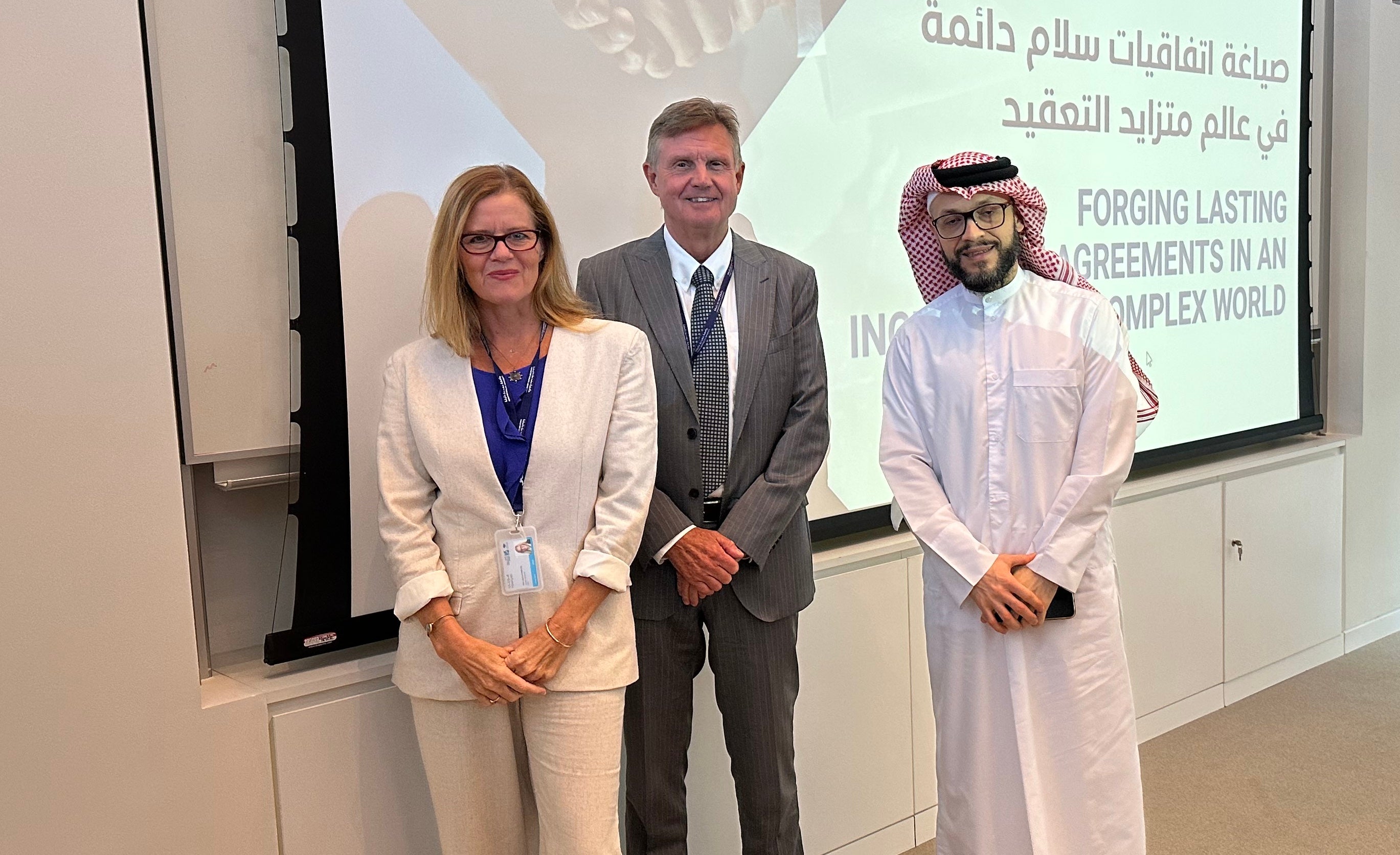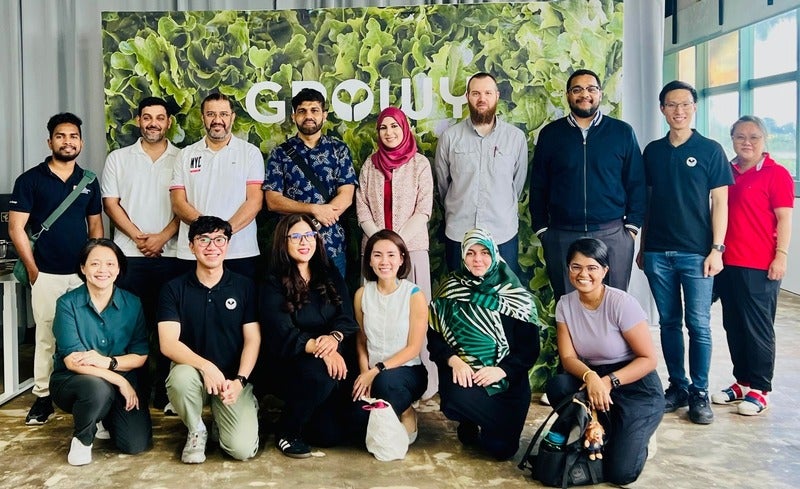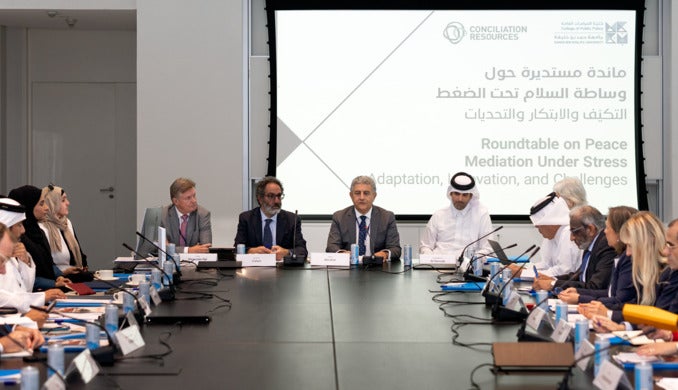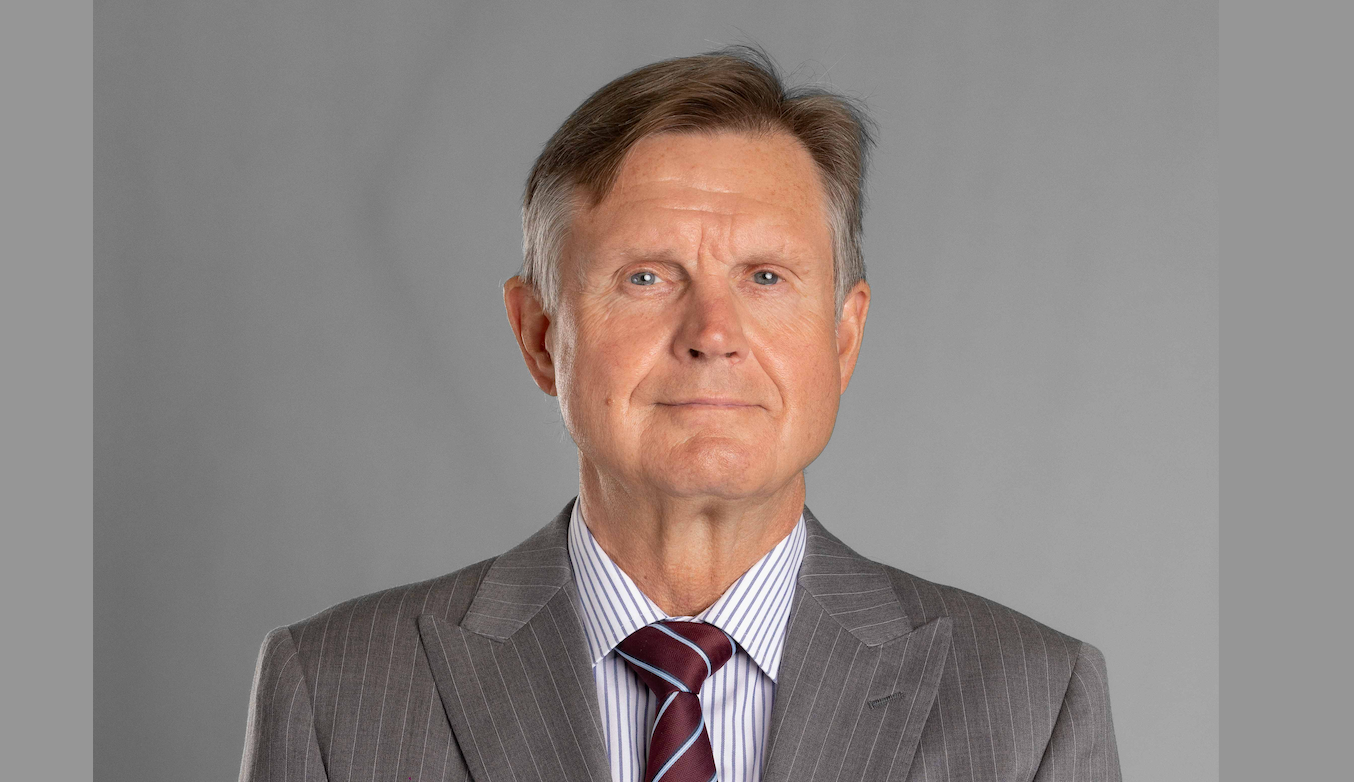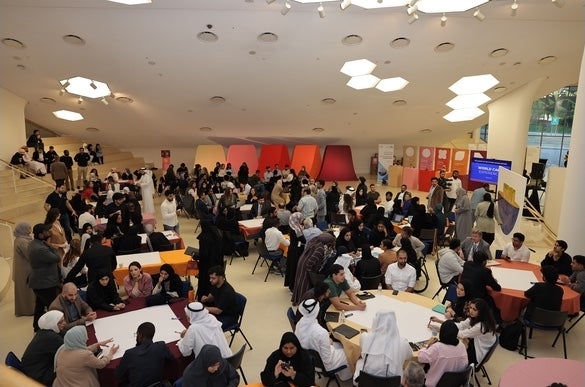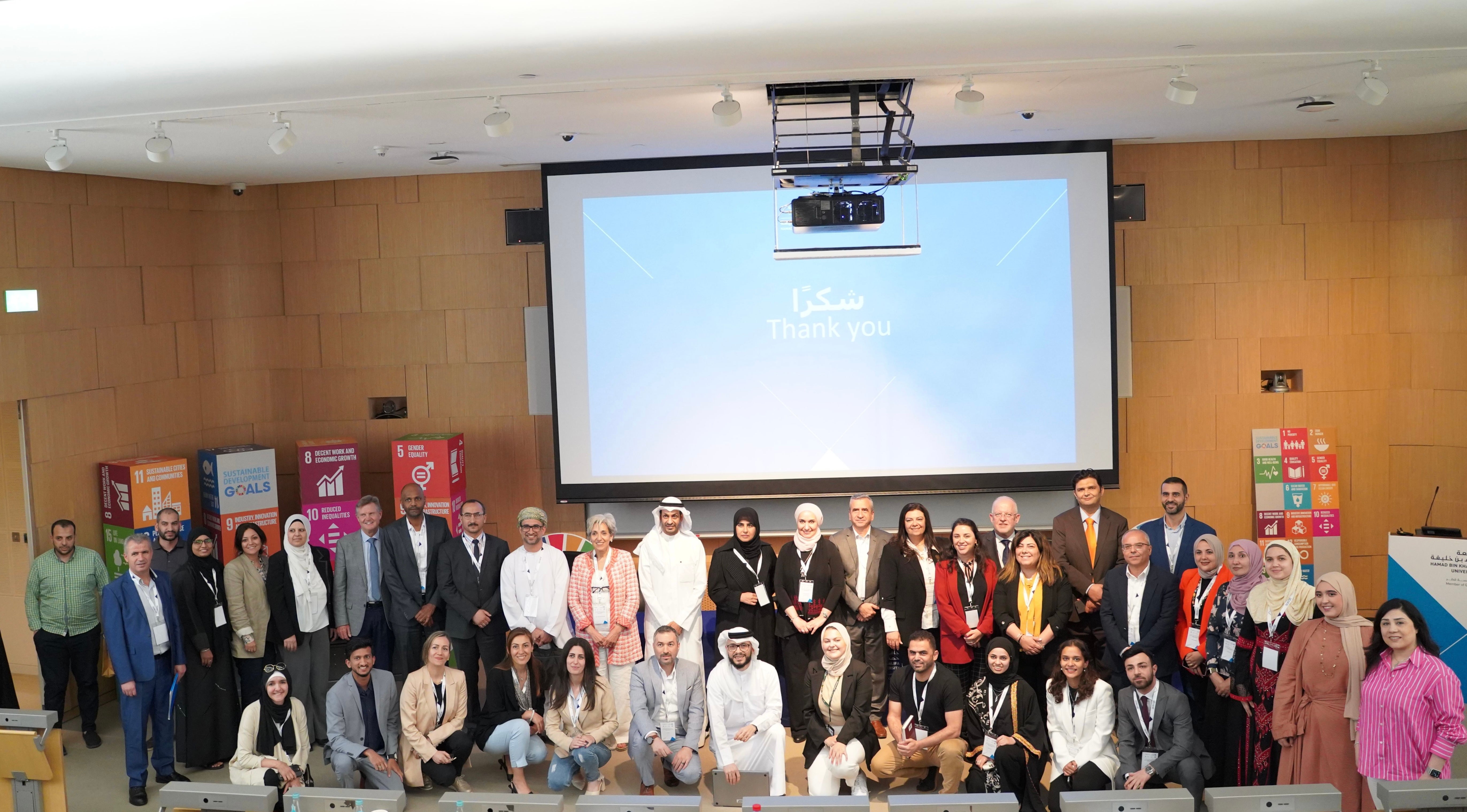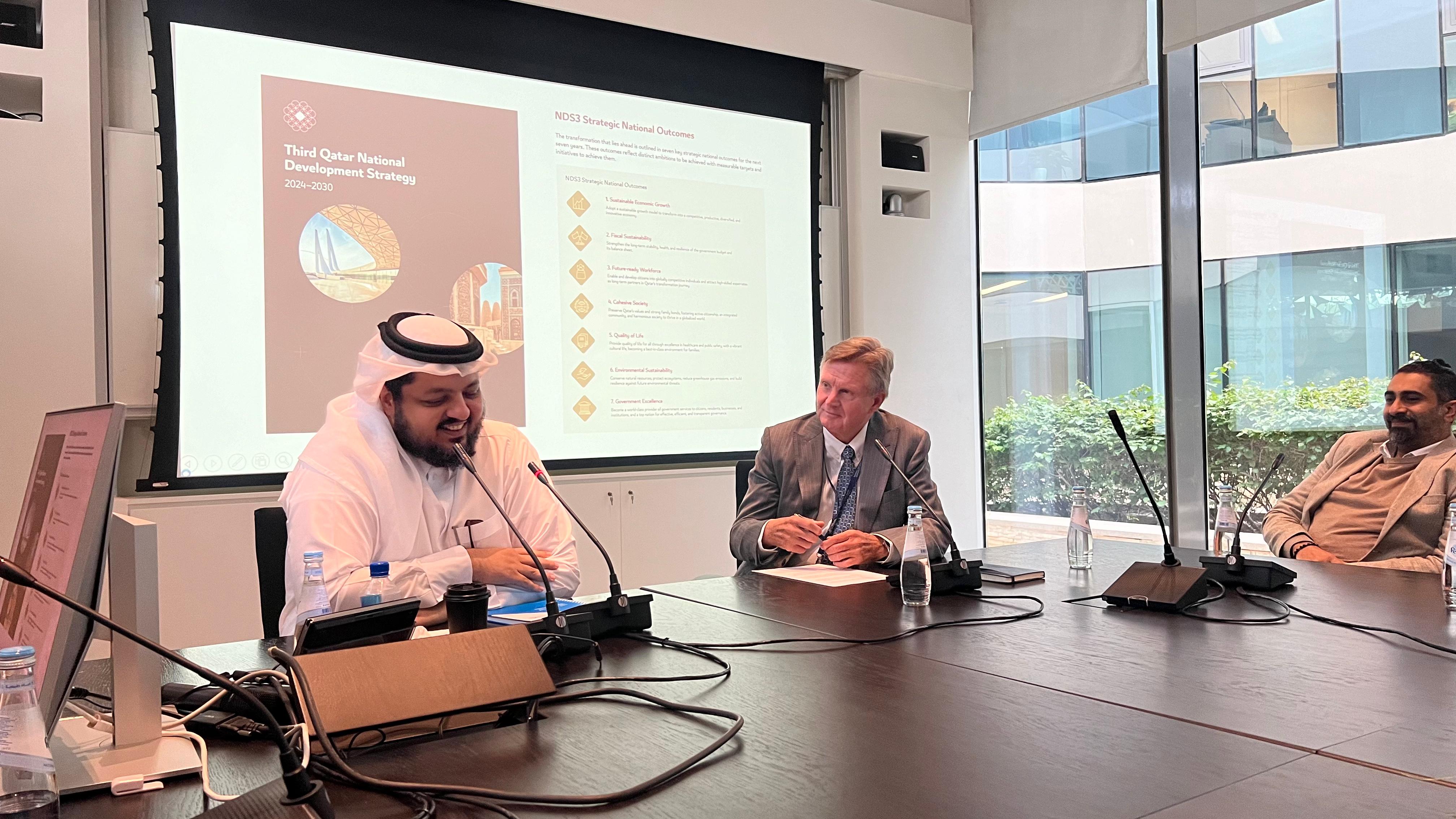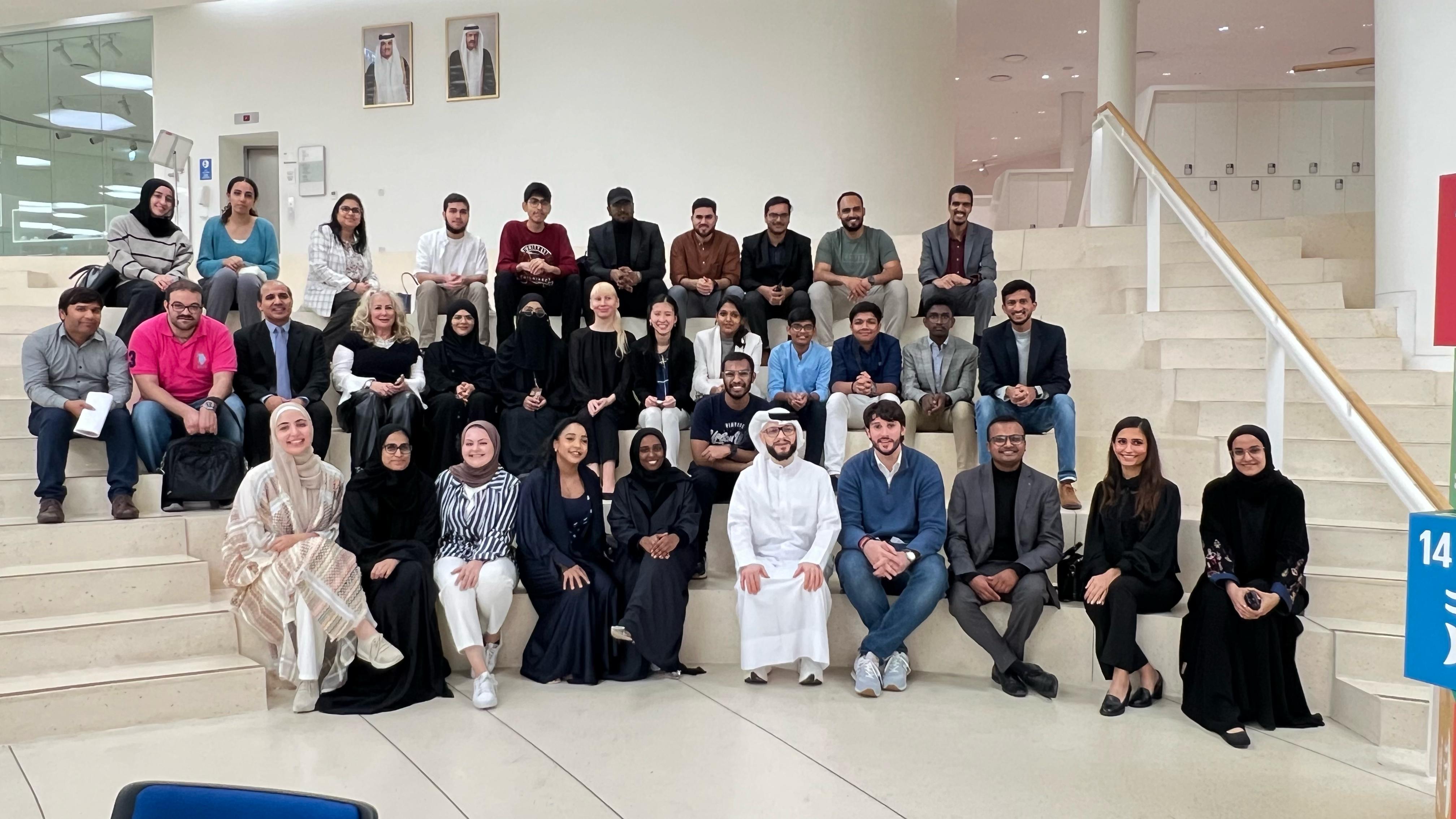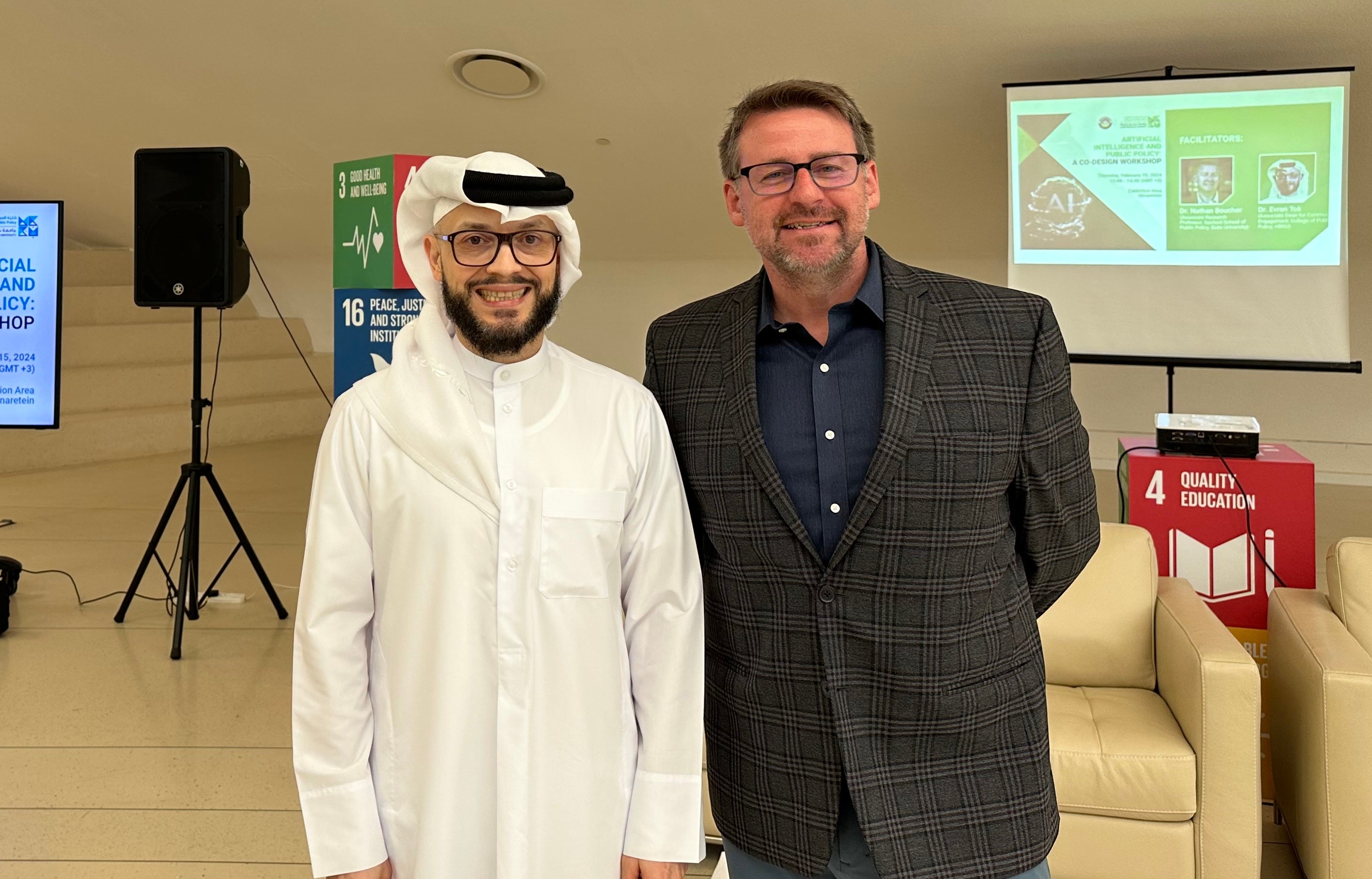
HBKU’s College of Public Policy Convenes the Ninth Session of the Afghanistan Future Thought Forum
Oslo meeting brought together Afghan for dialogue and discussions on challenges facing the country
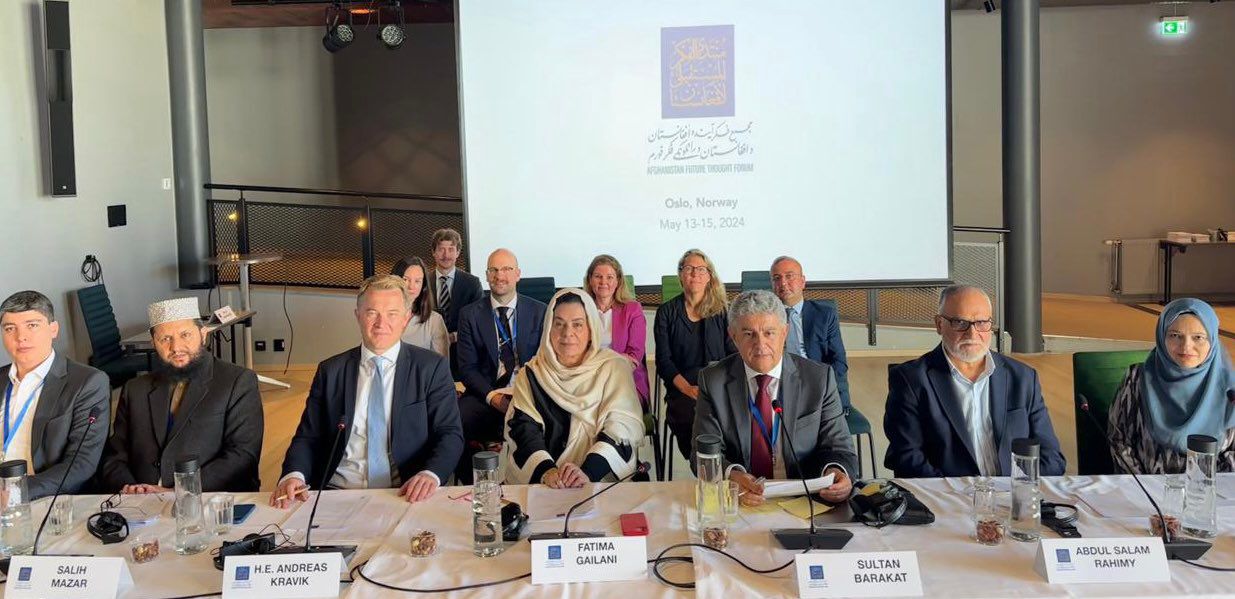
Organized by the College of Public Policy (CPP) at Hamad Bin Khalifa University (HBKU) and hosted by the Norwegian Ministry of Foreign Affairs, the Afghanistan Future Thought Forum (AFTF) convened for its 9th session under the chairmanship of Mrs. Fatima Gailani in Oslo, Norway on 13-15 May 2024. The three-day forum brought together 27 notable Afghans from various ethnicities and political persuasions from inside and outside Afghanistan for dialogue, united by the will to seek sustainable policy solutions to the current challenges facing the country, while denouncing violence and the return to war.
The Oslo meeting marked the conclusion of an 18-month research grant awarded by the Norwegian Ministry of Foreign Affairs to Dr. Sultan Barakat, Professor, CPP, from January 2023 to June 2024. The AFTF was initiated by Dr. Barakat as the centerpiece of a wider action research project where knowledge gained is leading to both policy change and bridging a divide between stakeholders. Previous AFTF meetings were held in a number of capitals including Doha, Istanbul, Kabul and Jakarta.
The meeting was opened by His Excellency Andreas Kravik, Norwegian State Secretary for Foreign Affairs, who welcomed the participants to Oslo and underlined the crucial role AFTF plays in progressing peaceful dialogue for the future stability of Afghanistan.
“The underlying theory of change that guided our policy dialogue work is that enhancing inclusive policy making in the Interim and successive governments in Afghanistan is best achieved through sustained constructive dialogue between all Afghan stakeholders, facilitated by an impartial third-party that can offer trusted, professional and discrete advice. This is the role that I and other colleagues from CPP have been playing over the duration of the grant. It contrasts with the assumption of many in the international community that loud, public admonishing and criticizing in the media is a better way to influence the policy positions of the Taliban on core issues such as girls’ education”, said Dr. Sultan Barakat.
The discussion during the 9th AFTF session focused on the challenges facing the Afghan economy, the forced return of Afghans from Pakistan and Iran, challenges in secondary and higher education and rights of women, as well as the question of international engagement with Afghanistan’s de-facto authorities. “The gridlock in dialogue among Afghan groups is accompanied by the breakdown of relations between the interim government and international donors, resulting in the suspension of bilateral development assistance and freezing of Afghan central bank assets,” added Dr. Barakat. The final conclusions were presented to senior diplomats from Iran, Pakistan, India, China, Netherlands, Switzerland, Sweden, Finland, Türkiye, Japan, Germany, Norway, Italy, Canada, United States, United Kingdom and the European Union.
Commenting on the AFTF, Dr. Leslie A. Pal, Professor and Founding Dean, CPP, added:“There is a dearth of impartial third-party facilitators convening productive policy exchanges on priorities for relief, reconstruction, and stabilization between Afghanistan’s Interim Government and the international community, as well as its regional neighbors. At the College of Public Policy, we are very pleased to be able to play such a critical role and to see our research work having an impact at the highest international levels of policy making”.
Related News
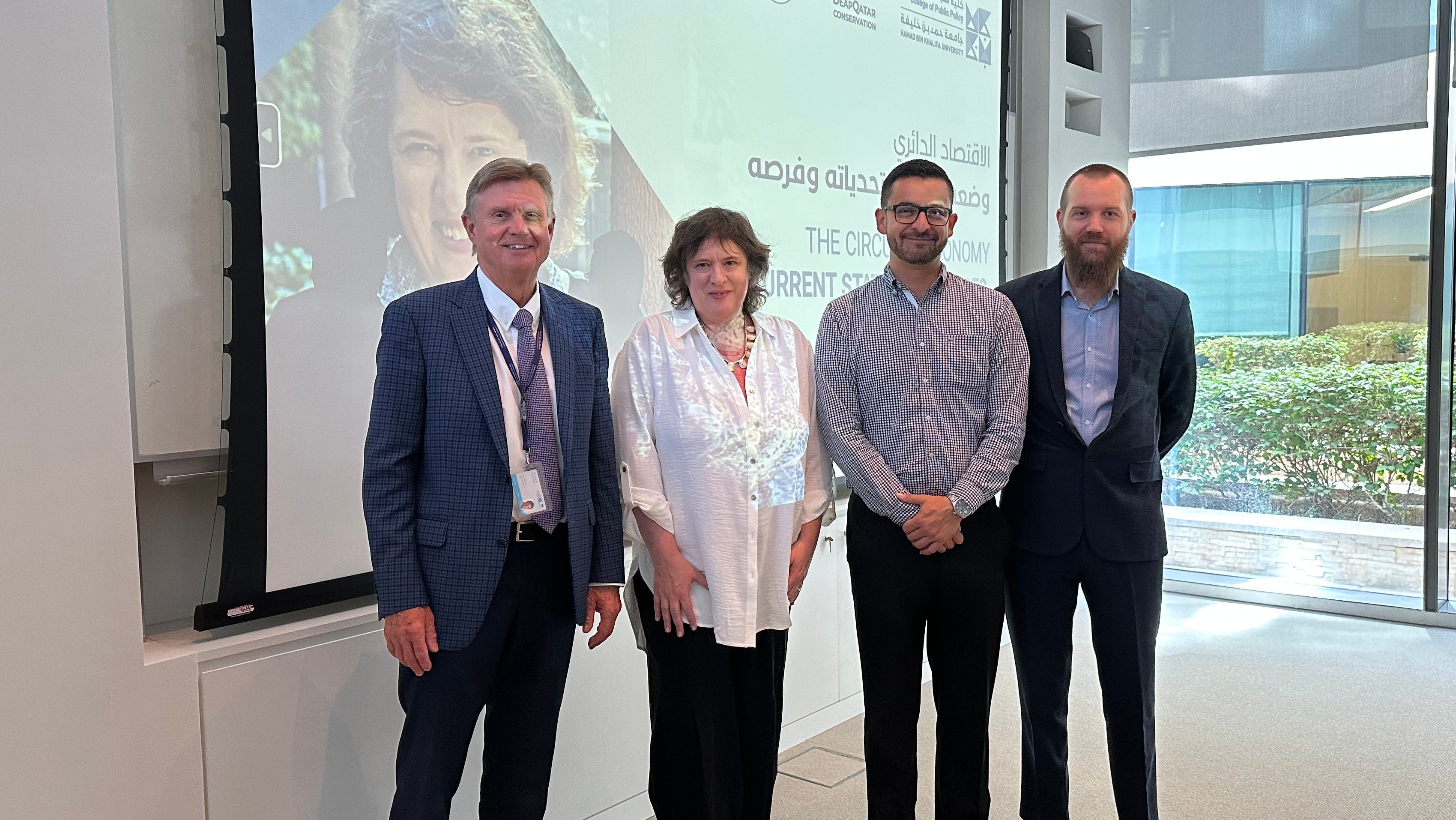
CPP, US Embassy in Doha, and DeapQatar Conservation Co-Host Circular Economy Lecture
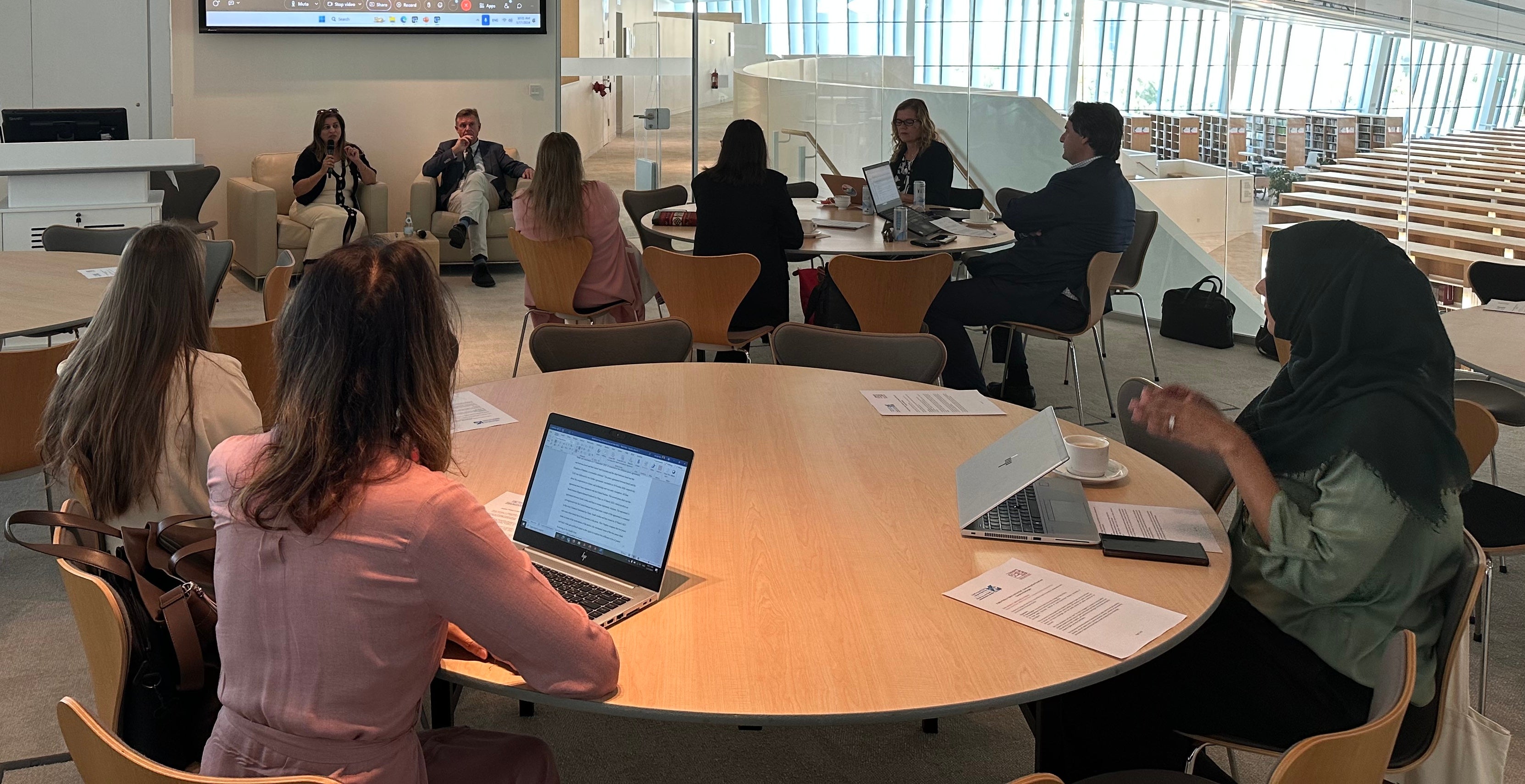
CPP, Doha Institute for Graduate Studies, and University of Birmingham Co-Host Symposium on Public Policy in the Gulf

HBKU’s College of Public Policy Invites Global Academics and Experts for Conference on Rebuilding Higher Education in Gaza
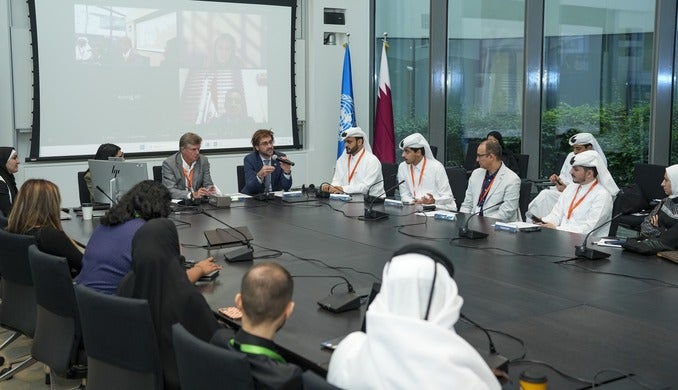
The United Nations Office of Counter-Terrorism and Leading Universities in Qatar Launch the Doha Youth Parliamentary Forum
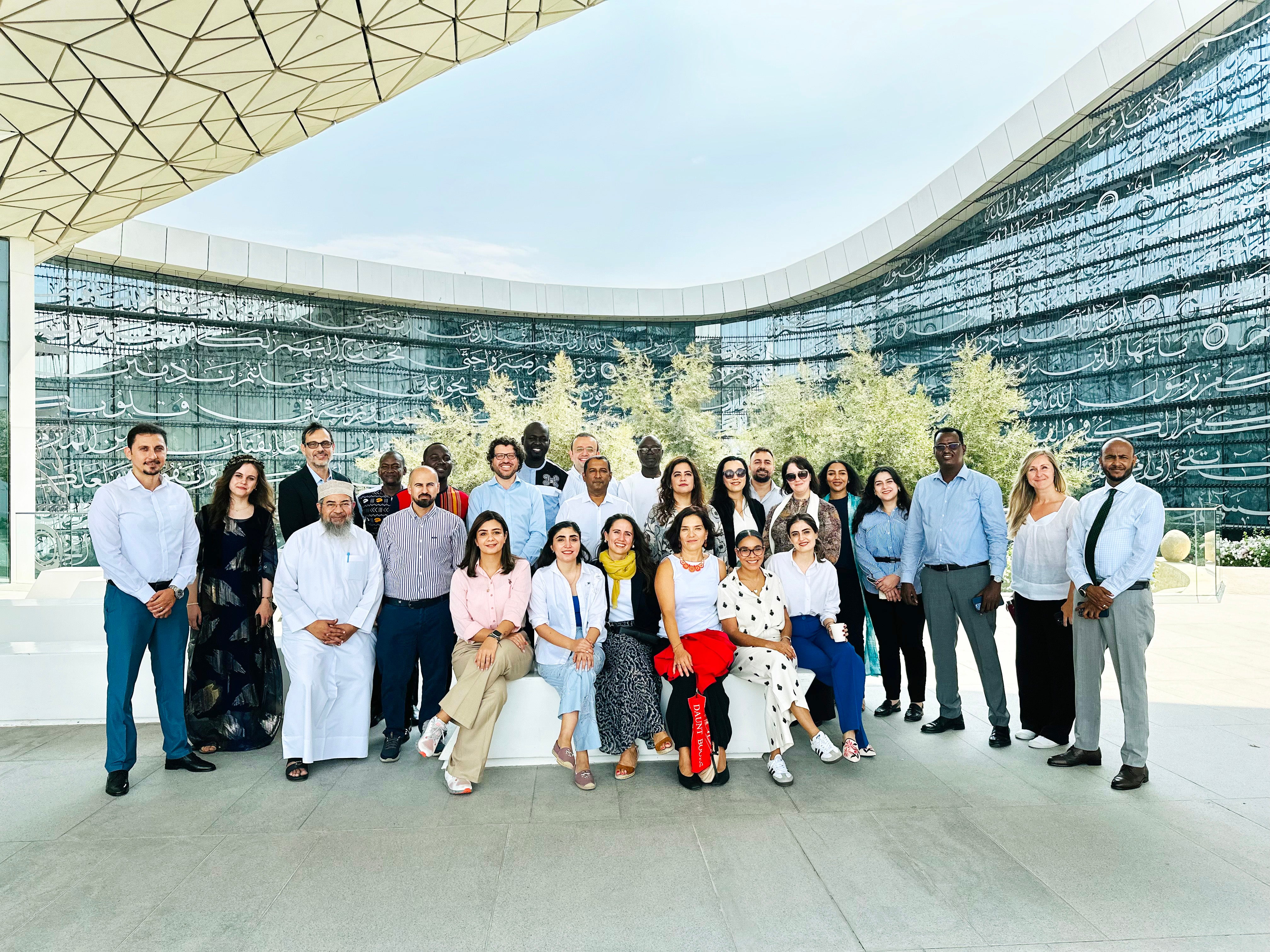
HBKU’s CPP and Geneva Graduate Institute Launch 2024-2025 Executive Programs in Development Policies and Practices
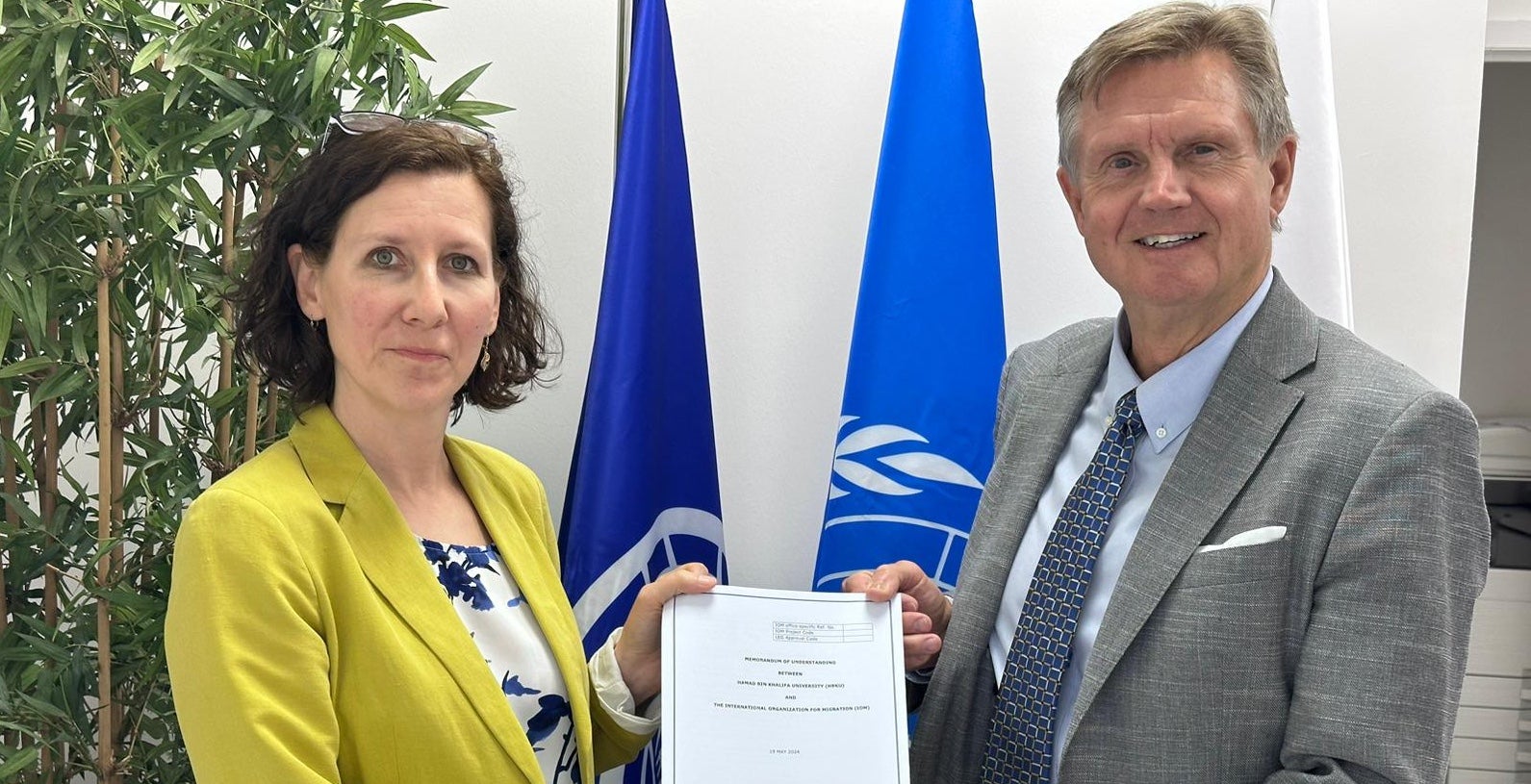
HBKU’s CPP Celebrates #TogetherinQatar Awards Ceremony after Signing MoU with the International Organization for Migration
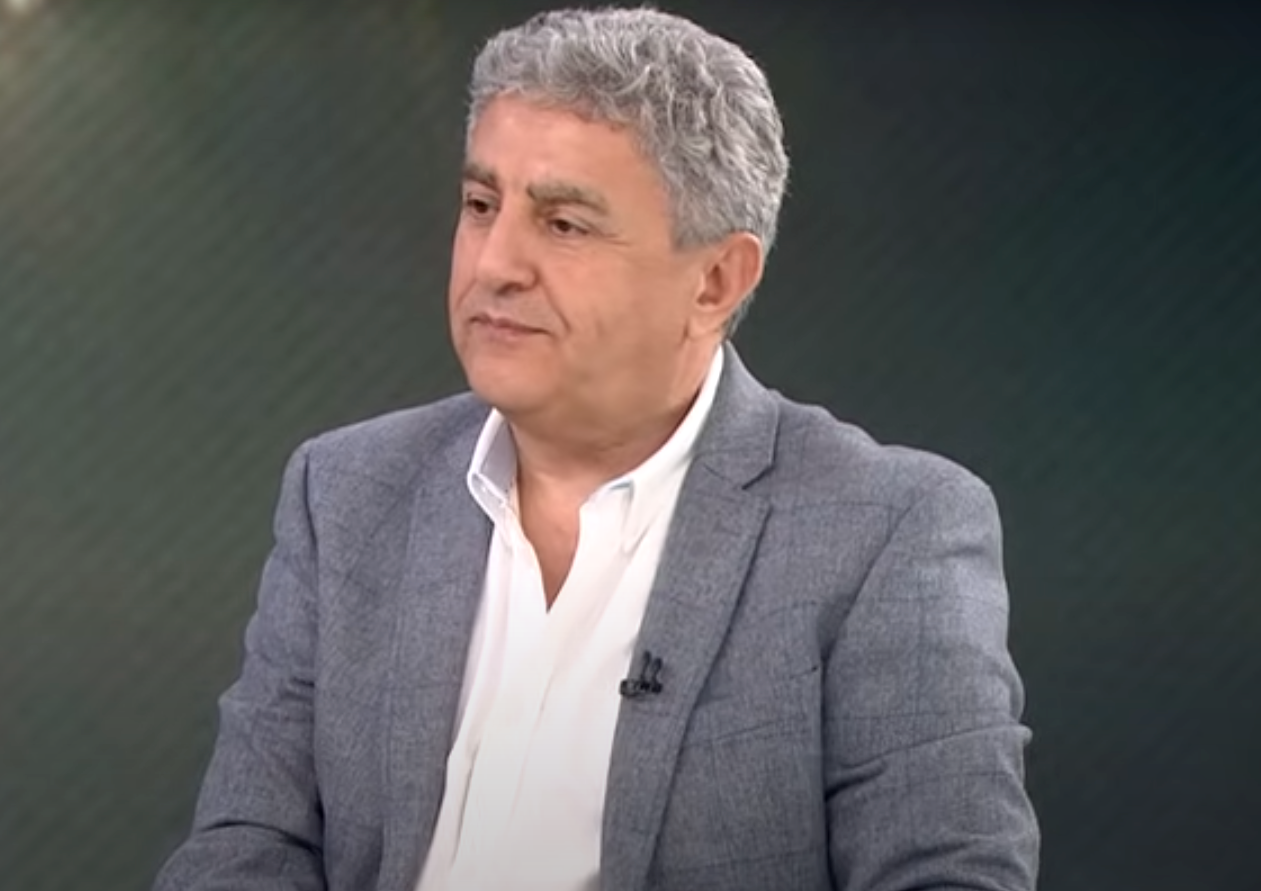
HBKU Professor Advises Global Policymakers on the Challenge of Engagement with the Taliban’s De-Facto Government
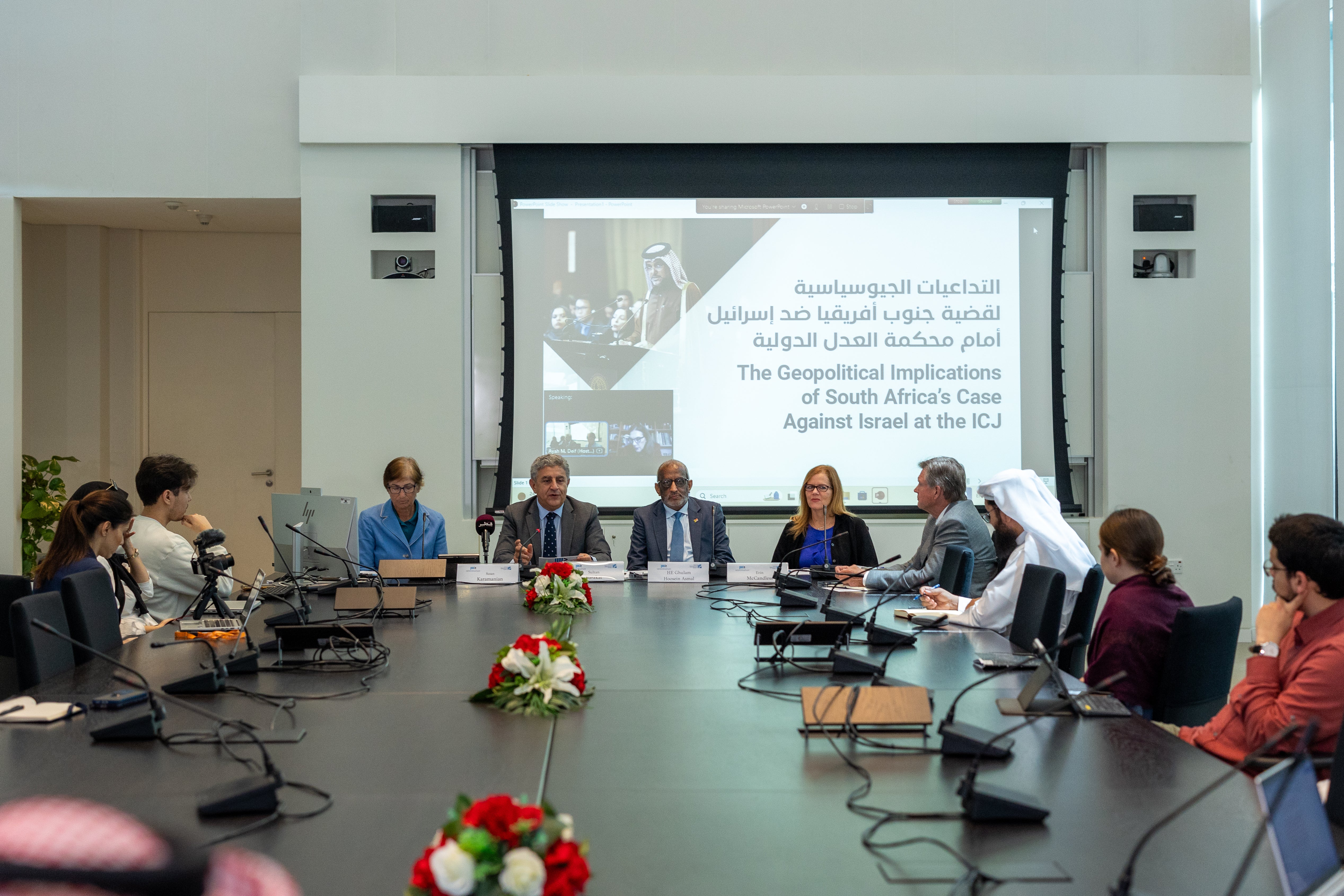
GISR Panel Analyzes Geopolitical Implications of South Africa’s Case against Israel at the ICJ
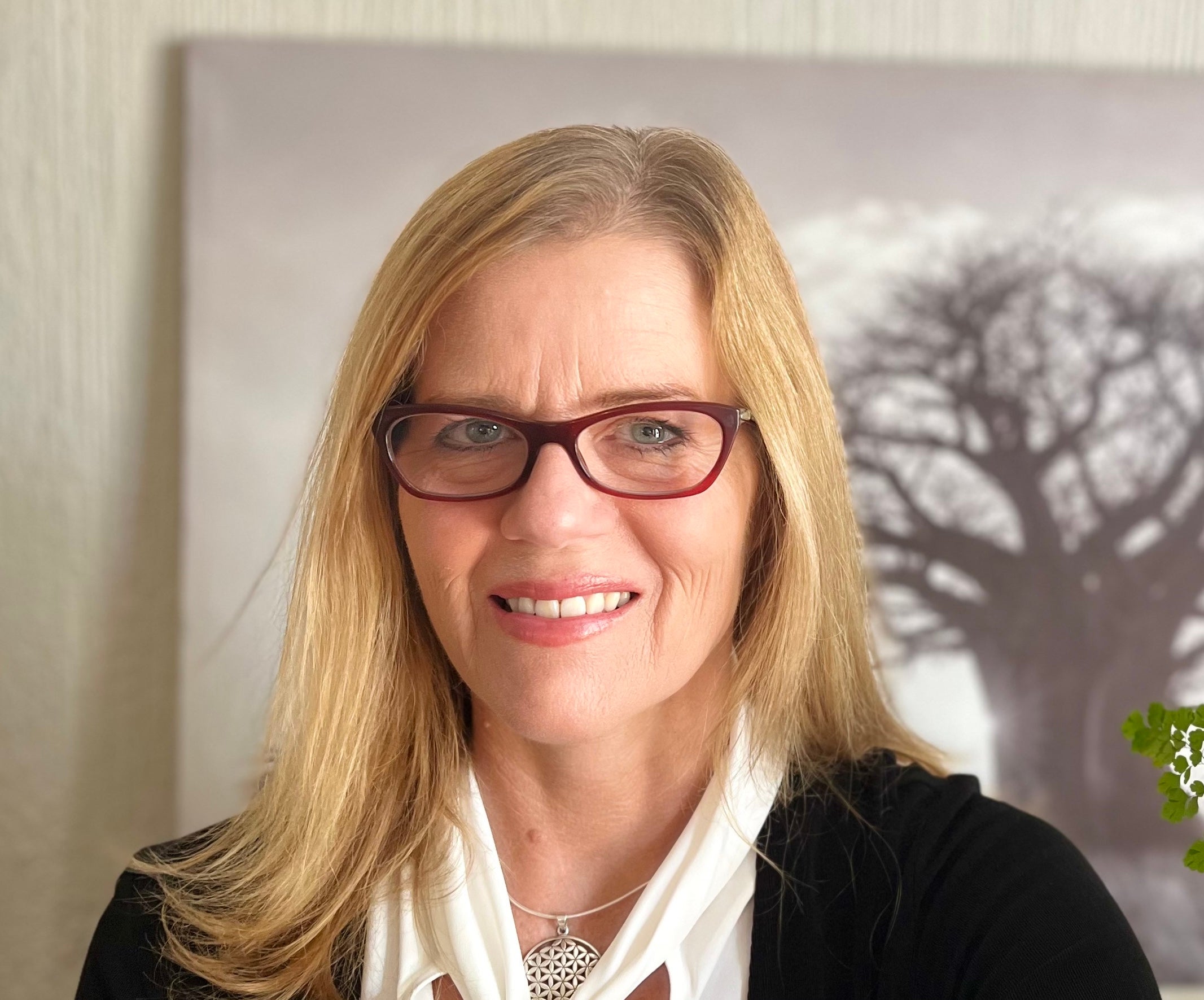
CPP Welcomes Erin McCandless as Distinguished Visiting Professor of Public Value

CPP, US Embassy in Doha, and DeapQatar Conservation Co-Host Circular Economy Lecture

CPP, Doha Institute for Graduate Studies, and University of Birmingham Co-Host Symposium on Public Policy in the Gulf

HBKU’s College of Public Policy Invites Global Academics and Experts for Conference on Rebuilding Higher Education in Gaza

The United Nations Office of Counter-Terrorism and Leading Universities in Qatar Launch the Doha Youth Parliamentary Forum

HBKU’s CPP and Geneva Graduate Institute Launch 2024-2025 Executive Programs in Development Policies and Practices

HBKU’s CPP Celebrates #TogetherinQatar Awards Ceremony after Signing MoU with the International Organization for Migration

HBKU Professor Advises Global Policymakers on the Challenge of Engagement with the Taliban’s De-Facto Government

GISR Panel Analyzes Geopolitical Implications of South Africa’s Case against Israel at the ICJ

CPP Welcomes Erin McCandless as Distinguished Visiting Professor of Public Value

CPP, US Embassy in Doha, and DeapQatar Conservation Co-Host Circular Economy Lecture

CPP, Doha Institute for Graduate Studies, and University of Birmingham Co-Host Symposium on Public Policy in the Gulf

HBKU’s College of Public Policy Invites Global Academics and Experts for Conference on Rebuilding Higher Education in Gaza

The United Nations Office of Counter-Terrorism and Leading Universities in Qatar Launch the Doha Youth Parliamentary Forum

HBKU’s CPP and Geneva Graduate Institute Launch 2024-2025 Executive Programs in Development Policies and Practices

HBKU’s CPP Celebrates #TogetherinQatar Awards Ceremony after Signing MoU with the International Organization for Migration

HBKU Professor Advises Global Policymakers on the Challenge of Engagement with the Taliban’s De-Facto Government

GISR Panel Analyzes Geopolitical Implications of South Africa’s Case against Israel at the ICJ

CPP Welcomes Erin McCandless as Distinguished Visiting Professor of Public Value

CPP, US Embassy in Doha, and DeapQatar Conservation Co-Host Circular Economy Lecture

CPP, Doha Institute for Graduate Studies, and University of Birmingham Co-Host Symposium on Public Policy in the Gulf

HBKU’s College of Public Policy Invites Global Academics and Experts for Conference on Rebuilding Higher Education in Gaza

The United Nations Office of Counter-Terrorism and Leading Universities in Qatar Launch the Doha Youth Parliamentary Forum

HBKU’s CPP and Geneva Graduate Institute Launch 2024-2025 Executive Programs in Development Policies and Practices

HBKU’s CPP Celebrates #TogetherinQatar Awards Ceremony after Signing MoU with the International Organization for Migration

HBKU Professor Advises Global Policymakers on the Challenge of Engagement with the Taliban’s De-Facto Government

GISR Panel Analyzes Geopolitical Implications of South Africa’s Case against Israel at the ICJ

CPP Welcomes Erin McCandless as Distinguished Visiting Professor of Public Value

CPP, US Embassy in Doha, and DeapQatar Conservation Co-Host Circular Economy Lecture

CPP, Doha Institute for Graduate Studies, and University of Birmingham Co-Host Symposium on Public Policy in the Gulf

HBKU’s College of Public Policy Invites Global Academics and Experts for Conference on Rebuilding Higher Education in Gaza

The United Nations Office of Counter-Terrorism and Leading Universities in Qatar Launch the Doha Youth Parliamentary Forum

HBKU’s CPP and Geneva Graduate Institute Launch 2024-2025 Executive Programs in Development Policies and Practices

HBKU’s CPP Celebrates #TogetherinQatar Awards Ceremony after Signing MoU with the International Organization for Migration

HBKU Professor Advises Global Policymakers on the Challenge of Engagement with the Taliban’s De-Facto Government

GISR Panel Analyzes Geopolitical Implications of South Africa’s Case against Israel at the ICJ

CPP Welcomes Erin McCandless as Distinguished Visiting Professor of Public Value

CPP, US Embassy in Doha, and DeapQatar Conservation Co-Host Circular Economy Lecture

CPP, Doha Institute for Graduate Studies, and University of Birmingham Co-Host Symposium on Public Policy in the Gulf

HBKU’s College of Public Policy Invites Global Academics and Experts for Conference on Rebuilding Higher Education in Gaza

The United Nations Office of Counter-Terrorism and Leading Universities in Qatar Launch the Doha Youth Parliamentary Forum

HBKU’s CPP and Geneva Graduate Institute Launch 2024-2025 Executive Programs in Development Policies and Practices

HBKU’s CPP Celebrates #TogetherinQatar Awards Ceremony after Signing MoU with the International Organization for Migration

HBKU Professor Advises Global Policymakers on the Challenge of Engagement with the Taliban’s De-Facto Government

GISR Panel Analyzes Geopolitical Implications of South Africa’s Case against Israel at the ICJ

CPP Welcomes Erin McCandless as Distinguished Visiting Professor of Public Value

CPP, US Embassy in Doha, and DeapQatar Conservation Co-Host Circular Economy Lecture

CPP, Doha Institute for Graduate Studies, and University of Birmingham Co-Host Symposium on Public Policy in the Gulf

HBKU’s College of Public Policy Invites Global Academics and Experts for Conference on Rebuilding Higher Education in Gaza

The United Nations Office of Counter-Terrorism and Leading Universities in Qatar Launch the Doha Youth Parliamentary Forum

HBKU’s CPP and Geneva Graduate Institute Launch 2024-2025 Executive Programs in Development Policies and Practices

HBKU’s CPP Celebrates #TogetherinQatar Awards Ceremony after Signing MoU with the International Organization for Migration

HBKU Professor Advises Global Policymakers on the Challenge of Engagement with the Taliban’s De-Facto Government

GISR Panel Analyzes Geopolitical Implications of South Africa’s Case against Israel at the ICJ

CPP Welcomes Erin McCandless as Distinguished Visiting Professor of Public Value

CPP, US Embassy in Doha, and DeapQatar Conservation Co-Host Circular Economy Lecture

CPP, Doha Institute for Graduate Studies, and University of Birmingham Co-Host Symposium on Public Policy in the Gulf

HBKU’s College of Public Policy Invites Global Academics and Experts for Conference on Rebuilding Higher Education in Gaza

The United Nations Office of Counter-Terrorism and Leading Universities in Qatar Launch the Doha Youth Parliamentary Forum

HBKU’s CPP and Geneva Graduate Institute Launch 2024-2025 Executive Programs in Development Policies and Practices

HBKU’s CPP Celebrates #TogetherinQatar Awards Ceremony after Signing MoU with the International Organization for Migration

HBKU Professor Advises Global Policymakers on the Challenge of Engagement with the Taliban’s De-Facto Government

GISR Panel Analyzes Geopolitical Implications of South Africa’s Case against Israel at the ICJ

CPP Welcomes Erin McCandless as Distinguished Visiting Professor of Public Value

CPP, US Embassy in Doha, and DeapQatar Conservation Co-Host Circular Economy Lecture

CPP, Doha Institute for Graduate Studies, and University of Birmingham Co-Host Symposium on Public Policy in the Gulf

HBKU’s College of Public Policy Invites Global Academics and Experts for Conference on Rebuilding Higher Education in Gaza

The United Nations Office of Counter-Terrorism and Leading Universities in Qatar Launch the Doha Youth Parliamentary Forum

HBKU’s CPP and Geneva Graduate Institute Launch 2024-2025 Executive Programs in Development Policies and Practices

HBKU’s CPP Celebrates #TogetherinQatar Awards Ceremony after Signing MoU with the International Organization for Migration

HBKU Professor Advises Global Policymakers on the Challenge of Engagement with the Taliban’s De-Facto Government

GISR Panel Analyzes Geopolitical Implications of South Africa’s Case against Israel at the ICJ

CPP Welcomes Erin McCandless as Distinguished Visiting Professor of Public Value

CPP, US Embassy in Doha, and DeapQatar Conservation Co-Host Circular Economy Lecture

CPP, Doha Institute for Graduate Studies, and University of Birmingham Co-Host Symposium on Public Policy in the Gulf

HBKU’s College of Public Policy Invites Global Academics and Experts for Conference on Rebuilding Higher Education in Gaza

The United Nations Office of Counter-Terrorism and Leading Universities in Qatar Launch the Doha Youth Parliamentary Forum

HBKU’s CPP and Geneva Graduate Institute Launch 2024-2025 Executive Programs in Development Policies and Practices

HBKU’s CPP Celebrates #TogetherinQatar Awards Ceremony after Signing MoU with the International Organization for Migration

HBKU Professor Advises Global Policymakers on the Challenge of Engagement with the Taliban’s De-Facto Government

GISR Panel Analyzes Geopolitical Implications of South Africa’s Case against Israel at the ICJ

CPP Welcomes Erin McCandless as Distinguished Visiting Professor of Public Value

CPP, US Embassy in Doha, and DeapQatar Conservation Co-Host Circular Economy Lecture

CPP, Doha Institute for Graduate Studies, and University of Birmingham Co-Host Symposium on Public Policy in the Gulf

HBKU’s College of Public Policy Invites Global Academics and Experts for Conference on Rebuilding Higher Education in Gaza

The United Nations Office of Counter-Terrorism and Leading Universities in Qatar Launch the Doha Youth Parliamentary Forum

HBKU’s CPP and Geneva Graduate Institute Launch 2024-2025 Executive Programs in Development Policies and Practices

HBKU’s CPP Celebrates #TogetherinQatar Awards Ceremony after Signing MoU with the International Organization for Migration

HBKU Professor Advises Global Policymakers on the Challenge of Engagement with the Taliban’s De-Facto Government

GISR Panel Analyzes Geopolitical Implications of South Africa’s Case against Israel at the ICJ

CPP Welcomes Erin McCandless as Distinguished Visiting Professor of Public Value

CPP, US Embassy in Doha, and DeapQatar Conservation Co-Host Circular Economy Lecture

CPP, Doha Institute for Graduate Studies, and University of Birmingham Co-Host Symposium on Public Policy in the Gulf

HBKU’s College of Public Policy Invites Global Academics and Experts for Conference on Rebuilding Higher Education in Gaza

The United Nations Office of Counter-Terrorism and Leading Universities in Qatar Launch the Doha Youth Parliamentary Forum

HBKU’s CPP and Geneva Graduate Institute Launch 2024-2025 Executive Programs in Development Policies and Practices

HBKU’s CPP Celebrates #TogetherinQatar Awards Ceremony after Signing MoU with the International Organization for Migration

HBKU Professor Advises Global Policymakers on the Challenge of Engagement with the Taliban’s De-Facto Government

GISR Panel Analyzes Geopolitical Implications of South Africa’s Case against Israel at the ICJ

CPP Welcomes Erin McCandless as Distinguished Visiting Professor of Public Value

CPP, US Embassy in Doha, and DeapQatar Conservation Co-Host Circular Economy Lecture

CPP, Doha Institute for Graduate Studies, and University of Birmingham Co-Host Symposium on Public Policy in the Gulf

HBKU’s College of Public Policy Invites Global Academics and Experts for Conference on Rebuilding Higher Education in Gaza

The United Nations Office of Counter-Terrorism and Leading Universities in Qatar Launch the Doha Youth Parliamentary Forum

HBKU’s CPP and Geneva Graduate Institute Launch 2024-2025 Executive Programs in Development Policies and Practices

HBKU’s CPP Celebrates #TogetherinQatar Awards Ceremony after Signing MoU with the International Organization for Migration

HBKU Professor Advises Global Policymakers on the Challenge of Engagement with the Taliban’s De-Facto Government

GISR Panel Analyzes Geopolitical Implications of South Africa’s Case against Israel at the ICJ

CPP Welcomes Erin McCandless as Distinguished Visiting Professor of Public Value

CPP, US Embassy in Doha, and DeapQatar Conservation Co-Host Circular Economy Lecture

CPP, Doha Institute for Graduate Studies, and University of Birmingham Co-Host Symposium on Public Policy in the Gulf

HBKU’s College of Public Policy Invites Global Academics and Experts for Conference on Rebuilding Higher Education in Gaza

The United Nations Office of Counter-Terrorism and Leading Universities in Qatar Launch the Doha Youth Parliamentary Forum

HBKU’s CPP and Geneva Graduate Institute Launch 2024-2025 Executive Programs in Development Policies and Practices

HBKU’s CPP Celebrates #TogetherinQatar Awards Ceremony after Signing MoU with the International Organization for Migration

HBKU Professor Advises Global Policymakers on the Challenge of Engagement with the Taliban’s De-Facto Government

GISR Panel Analyzes Geopolitical Implications of South Africa’s Case against Israel at the ICJ

CPP Welcomes Erin McCandless as Distinguished Visiting Professor of Public Value

CPP, US Embassy in Doha, and DeapQatar Conservation Co-Host Circular Economy Lecture

CPP, Doha Institute for Graduate Studies, and University of Birmingham Co-Host Symposium on Public Policy in the Gulf

HBKU’s College of Public Policy Invites Global Academics and Experts for Conference on Rebuilding Higher Education in Gaza

The United Nations Office of Counter-Terrorism and Leading Universities in Qatar Launch the Doha Youth Parliamentary Forum

HBKU’s CPP and Geneva Graduate Institute Launch 2024-2025 Executive Programs in Development Policies and Practices

HBKU’s CPP Celebrates #TogetherinQatar Awards Ceremony after Signing MoU with the International Organization for Migration

HBKU Professor Advises Global Policymakers on the Challenge of Engagement with the Taliban’s De-Facto Government

GISR Panel Analyzes Geopolitical Implications of South Africa’s Case against Israel at the ICJ

CPP Welcomes Erin McCandless as Distinguished Visiting Professor of Public Value

CPP, US Embassy in Doha, and DeapQatar Conservation Co-Host Circular Economy Lecture

CPP, Doha Institute for Graduate Studies, and University of Birmingham Co-Host Symposium on Public Policy in the Gulf

HBKU’s College of Public Policy Invites Global Academics and Experts for Conference on Rebuilding Higher Education in Gaza

The United Nations Office of Counter-Terrorism and Leading Universities in Qatar Launch the Doha Youth Parliamentary Forum

HBKU’s CPP and Geneva Graduate Institute Launch 2024-2025 Executive Programs in Development Policies and Practices

HBKU’s CPP Celebrates #TogetherinQatar Awards Ceremony after Signing MoU with the International Organization for Migration

HBKU Professor Advises Global Policymakers on the Challenge of Engagement with the Taliban’s De-Facto Government

GISR Panel Analyzes Geopolitical Implications of South Africa’s Case against Israel at the ICJ

CPP Welcomes Erin McCandless as Distinguished Visiting Professor of Public Value

CPP, US Embassy in Doha, and DeapQatar Conservation Co-Host Circular Economy Lecture

CPP, Doha Institute for Graduate Studies, and University of Birmingham Co-Host Symposium on Public Policy in the Gulf

HBKU’s College of Public Policy Invites Global Academics and Experts for Conference on Rebuilding Higher Education in Gaza

The United Nations Office of Counter-Terrorism and Leading Universities in Qatar Launch the Doha Youth Parliamentary Forum

HBKU’s CPP and Geneva Graduate Institute Launch 2024-2025 Executive Programs in Development Policies and Practices

HBKU’s CPP Celebrates #TogetherinQatar Awards Ceremony after Signing MoU with the International Organization for Migration

HBKU Professor Advises Global Policymakers on the Challenge of Engagement with the Taliban’s De-Facto Government

GISR Panel Analyzes Geopolitical Implications of South Africa’s Case against Israel at the ICJ

CPP Welcomes Erin McCandless as Distinguished Visiting Professor of Public Value

CPP, US Embassy in Doha, and DeapQatar Conservation Co-Host Circular Economy Lecture

CPP, Doha Institute for Graduate Studies, and University of Birmingham Co-Host Symposium on Public Policy in the Gulf

HBKU’s College of Public Policy Invites Global Academics and Experts for Conference on Rebuilding Higher Education in Gaza

The United Nations Office of Counter-Terrorism and Leading Universities in Qatar Launch the Doha Youth Parliamentary Forum

HBKU’s CPP and Geneva Graduate Institute Launch 2024-2025 Executive Programs in Development Policies and Practices

HBKU’s CPP Celebrates #TogetherinQatar Awards Ceremony after Signing MoU with the International Organization for Migration

HBKU Professor Advises Global Policymakers on the Challenge of Engagement with the Taliban’s De-Facto Government

GISR Panel Analyzes Geopolitical Implications of South Africa’s Case against Israel at the ICJ

CPP Welcomes Erin McCandless as Distinguished Visiting Professor of Public Value

CPP, US Embassy in Doha, and DeapQatar Conservation Co-Host Circular Economy Lecture

CPP, Doha Institute for Graduate Studies, and University of Birmingham Co-Host Symposium on Public Policy in the Gulf

HBKU’s College of Public Policy Invites Global Academics and Experts for Conference on Rebuilding Higher Education in Gaza

The United Nations Office of Counter-Terrorism and Leading Universities in Qatar Launch the Doha Youth Parliamentary Forum

HBKU’s CPP and Geneva Graduate Institute Launch 2024-2025 Executive Programs in Development Policies and Practices

HBKU’s CPP Celebrates #TogetherinQatar Awards Ceremony after Signing MoU with the International Organization for Migration

HBKU Professor Advises Global Policymakers on the Challenge of Engagement with the Taliban’s De-Facto Government

GISR Panel Analyzes Geopolitical Implications of South Africa’s Case against Israel at the ICJ

CPP Welcomes Erin McCandless as Distinguished Visiting Professor of Public Value

CPP, US Embassy in Doha, and DeapQatar Conservation Co-Host Circular Economy Lecture

CPP, Doha Institute for Graduate Studies, and University of Birmingham Co-Host Symposium on Public Policy in the Gulf

HBKU’s College of Public Policy Invites Global Academics and Experts for Conference on Rebuilding Higher Education in Gaza

The United Nations Office of Counter-Terrorism and Leading Universities in Qatar Launch the Doha Youth Parliamentary Forum

HBKU’s CPP and Geneva Graduate Institute Launch 2024-2025 Executive Programs in Development Policies and Practices

HBKU’s CPP Celebrates #TogetherinQatar Awards Ceremony after Signing MoU with the International Organization for Migration

HBKU Professor Advises Global Policymakers on the Challenge of Engagement with the Taliban’s De-Facto Government

GISR Panel Analyzes Geopolitical Implications of South Africa’s Case against Israel at the ICJ

CPP Welcomes Erin McCandless as Distinguished Visiting Professor of Public Value

CPP, US Embassy in Doha, and DeapQatar Conservation Co-Host Circular Economy Lecture

CPP, Doha Institute for Graduate Studies, and University of Birmingham Co-Host Symposium on Public Policy in the Gulf

HBKU’s College of Public Policy Invites Global Academics and Experts for Conference on Rebuilding Higher Education in Gaza

The United Nations Office of Counter-Terrorism and Leading Universities in Qatar Launch the Doha Youth Parliamentary Forum

HBKU’s CPP and Geneva Graduate Institute Launch 2024-2025 Executive Programs in Development Policies and Practices

HBKU’s CPP Celebrates #TogetherinQatar Awards Ceremony after Signing MoU with the International Organization for Migration

HBKU Professor Advises Global Policymakers on the Challenge of Engagement with the Taliban’s De-Facto Government

GISR Panel Analyzes Geopolitical Implications of South Africa’s Case against Israel at the ICJ

CPP Welcomes Erin McCandless as Distinguished Visiting Professor of Public Value

CPP, US Embassy in Doha, and DeapQatar Conservation Co-Host Circular Economy Lecture

CPP, Doha Institute for Graduate Studies, and University of Birmingham Co-Host Symposium on Public Policy in the Gulf

HBKU’s College of Public Policy Invites Global Academics and Experts for Conference on Rebuilding Higher Education in Gaza

The United Nations Office of Counter-Terrorism and Leading Universities in Qatar Launch the Doha Youth Parliamentary Forum

HBKU’s CPP and Geneva Graduate Institute Launch 2024-2025 Executive Programs in Development Policies and Practices

HBKU’s CPP Celebrates #TogetherinQatar Awards Ceremony after Signing MoU with the International Organization for Migration

HBKU Professor Advises Global Policymakers on the Challenge of Engagement with the Taliban’s De-Facto Government

GISR Panel Analyzes Geopolitical Implications of South Africa’s Case against Israel at the ICJ

CPP Welcomes Erin McCandless as Distinguished Visiting Professor of Public Value

CPP, US Embassy in Doha, and DeapQatar Conservation Co-Host Circular Economy Lecture

CPP, Doha Institute for Graduate Studies, and University of Birmingham Co-Host Symposium on Public Policy in the Gulf

HBKU’s College of Public Policy Invites Global Academics and Experts for Conference on Rebuilding Higher Education in Gaza

The United Nations Office of Counter-Terrorism and Leading Universities in Qatar Launch the Doha Youth Parliamentary Forum

HBKU’s CPP and Geneva Graduate Institute Launch 2024-2025 Executive Programs in Development Policies and Practices

HBKU’s CPP Celebrates #TogetherinQatar Awards Ceremony after Signing MoU with the International Organization for Migration

HBKU Professor Advises Global Policymakers on the Challenge of Engagement with the Taliban’s De-Facto Government

GISR Panel Analyzes Geopolitical Implications of South Africa’s Case against Israel at the ICJ

CPP Welcomes Erin McCandless as Distinguished Visiting Professor of Public Value

CPP, US Embassy in Doha, and DeapQatar Conservation Co-Host Circular Economy Lecture

CPP, Doha Institute for Graduate Studies, and University of Birmingham Co-Host Symposium on Public Policy in the Gulf

HBKU’s College of Public Policy Invites Global Academics and Experts for Conference on Rebuilding Higher Education in Gaza

The United Nations Office of Counter-Terrorism and Leading Universities in Qatar Launch the Doha Youth Parliamentary Forum

HBKU’s CPP and Geneva Graduate Institute Launch 2024-2025 Executive Programs in Development Policies and Practices

HBKU’s CPP Celebrates #TogetherinQatar Awards Ceremony after Signing MoU with the International Organization for Migration

HBKU Professor Advises Global Policymakers on the Challenge of Engagement with the Taliban’s De-Facto Government

GISR Panel Analyzes Geopolitical Implications of South Africa’s Case against Israel at the ICJ

CPP Welcomes Erin McCandless as Distinguished Visiting Professor of Public Value

CPP, US Embassy in Doha, and DeapQatar Conservation Co-Host Circular Economy Lecture

CPP, Doha Institute for Graduate Studies, and University of Birmingham Co-Host Symposium on Public Policy in the Gulf

HBKU’s College of Public Policy Invites Global Academics and Experts for Conference on Rebuilding Higher Education in Gaza

The United Nations Office of Counter-Terrorism and Leading Universities in Qatar Launch the Doha Youth Parliamentary Forum

HBKU’s CPP and Geneva Graduate Institute Launch 2024-2025 Executive Programs in Development Policies and Practices

HBKU’s CPP Celebrates #TogetherinQatar Awards Ceremony after Signing MoU with the International Organization for Migration

HBKU Professor Advises Global Policymakers on the Challenge of Engagement with the Taliban’s De-Facto Government

GISR Panel Analyzes Geopolitical Implications of South Africa’s Case against Israel at the ICJ

CPP Welcomes Erin McCandless as Distinguished Visiting Professor of Public Value

CPP, US Embassy in Doha, and DeapQatar Conservation Co-Host Circular Economy Lecture

CPP, Doha Institute for Graduate Studies, and University of Birmingham Co-Host Symposium on Public Policy in the Gulf

HBKU’s College of Public Policy Invites Global Academics and Experts for Conference on Rebuilding Higher Education in Gaza

The United Nations Office of Counter-Terrorism and Leading Universities in Qatar Launch the Doha Youth Parliamentary Forum

HBKU’s CPP and Geneva Graduate Institute Launch 2024-2025 Executive Programs in Development Policies and Practices

HBKU’s CPP Celebrates #TogetherinQatar Awards Ceremony after Signing MoU with the International Organization for Migration

HBKU Professor Advises Global Policymakers on the Challenge of Engagement with the Taliban’s De-Facto Government

GISR Panel Analyzes Geopolitical Implications of South Africa’s Case against Israel at the ICJ

CPP Welcomes Erin McCandless as Distinguished Visiting Professor of Public Value

CPP, US Embassy in Doha, and DeapQatar Conservation Co-Host Circular Economy Lecture

CPP, Doha Institute for Graduate Studies, and University of Birmingham Co-Host Symposium on Public Policy in the Gulf

HBKU’s College of Public Policy Invites Global Academics and Experts for Conference on Rebuilding Higher Education in Gaza

The United Nations Office of Counter-Terrorism and Leading Universities in Qatar Launch the Doha Youth Parliamentary Forum

HBKU’s CPP and Geneva Graduate Institute Launch 2024-2025 Executive Programs in Development Policies and Practices

HBKU’s CPP Celebrates #TogetherinQatar Awards Ceremony after Signing MoU with the International Organization for Migration

HBKU Professor Advises Global Policymakers on the Challenge of Engagement with the Taliban’s De-Facto Government

GISR Panel Analyzes Geopolitical Implications of South Africa’s Case against Israel at the ICJ

CPP Welcomes Erin McCandless as Distinguished Visiting Professor of Public Value

CPP, US Embassy in Doha, and DeapQatar Conservation Co-Host Circular Economy Lecture

CPP, Doha Institute for Graduate Studies, and University of Birmingham Co-Host Symposium on Public Policy in the Gulf

HBKU’s College of Public Policy Invites Global Academics and Experts for Conference on Rebuilding Higher Education in Gaza

The United Nations Office of Counter-Terrorism and Leading Universities in Qatar Launch the Doha Youth Parliamentary Forum

HBKU’s CPP and Geneva Graduate Institute Launch 2024-2025 Executive Programs in Development Policies and Practices

HBKU’s CPP Celebrates #TogetherinQatar Awards Ceremony after Signing MoU with the International Organization for Migration

HBKU Professor Advises Global Policymakers on the Challenge of Engagement with the Taliban’s De-Facto Government

GISR Panel Analyzes Geopolitical Implications of South Africa’s Case against Israel at the ICJ

CPP Welcomes Erin McCandless as Distinguished Visiting Professor of Public Value

CPP, US Embassy in Doha, and DeapQatar Conservation Co-Host Circular Economy Lecture

CPP, Doha Institute for Graduate Studies, and University of Birmingham Co-Host Symposium on Public Policy in the Gulf

HBKU’s College of Public Policy Invites Global Academics and Experts for Conference on Rebuilding Higher Education in Gaza

The United Nations Office of Counter-Terrorism and Leading Universities in Qatar Launch the Doha Youth Parliamentary Forum

HBKU’s CPP and Geneva Graduate Institute Launch 2024-2025 Executive Programs in Development Policies and Practices

HBKU’s CPP Celebrates #TogetherinQatar Awards Ceremony after Signing MoU with the International Organization for Migration

HBKU Professor Advises Global Policymakers on the Challenge of Engagement with the Taliban’s De-Facto Government

GISR Panel Analyzes Geopolitical Implications of South Africa’s Case against Israel at the ICJ

CPP Welcomes Erin McCandless as Distinguished Visiting Professor of Public Value

CPP, US Embassy in Doha, and DeapQatar Conservation Co-Host Circular Economy Lecture

CPP, Doha Institute for Graduate Studies, and University of Birmingham Co-Host Symposium on Public Policy in the Gulf

HBKU’s College of Public Policy Invites Global Academics and Experts for Conference on Rebuilding Higher Education in Gaza

The United Nations Office of Counter-Terrorism and Leading Universities in Qatar Launch the Doha Youth Parliamentary Forum

HBKU’s CPP and Geneva Graduate Institute Launch 2024-2025 Executive Programs in Development Policies and Practices

HBKU’s CPP Celebrates #TogetherinQatar Awards Ceremony after Signing MoU with the International Organization for Migration

HBKU Professor Advises Global Policymakers on the Challenge of Engagement with the Taliban’s De-Facto Government

GISR Panel Analyzes Geopolitical Implications of South Africa’s Case against Israel at the ICJ

CPP Welcomes Erin McCandless as Distinguished Visiting Professor of Public Value

CPP, US Embassy in Doha, and DeapQatar Conservation Co-Host Circular Economy Lecture

CPP, Doha Institute for Graduate Studies, and University of Birmingham Co-Host Symposium on Public Policy in the Gulf

HBKU’s College of Public Policy Invites Global Academics and Experts for Conference on Rebuilding Higher Education in Gaza

The United Nations Office of Counter-Terrorism and Leading Universities in Qatar Launch the Doha Youth Parliamentary Forum

HBKU’s CPP and Geneva Graduate Institute Launch 2024-2025 Executive Programs in Development Policies and Practices

HBKU’s CPP Celebrates #TogetherinQatar Awards Ceremony after Signing MoU with the International Organization for Migration

HBKU Professor Advises Global Policymakers on the Challenge of Engagement with the Taliban’s De-Facto Government

GISR Panel Analyzes Geopolitical Implications of South Africa’s Case against Israel at the ICJ

CPP Welcomes Erin McCandless as Distinguished Visiting Professor of Public Value

CPP, US Embassy in Doha, and DeapQatar Conservation Co-Host Circular Economy Lecture

CPP, Doha Institute for Graduate Studies, and University of Birmingham Co-Host Symposium on Public Policy in the Gulf

HBKU’s College of Public Policy Invites Global Academics and Experts for Conference on Rebuilding Higher Education in Gaza

The United Nations Office of Counter-Terrorism and Leading Universities in Qatar Launch the Doha Youth Parliamentary Forum

HBKU’s CPP and Geneva Graduate Institute Launch 2024-2025 Executive Programs in Development Policies and Practices

HBKU’s CPP Celebrates #TogetherinQatar Awards Ceremony after Signing MoU with the International Organization for Migration

HBKU Professor Advises Global Policymakers on the Challenge of Engagement with the Taliban’s De-Facto Government

GISR Panel Analyzes Geopolitical Implications of South Africa’s Case against Israel at the ICJ

CPP Welcomes Erin McCandless as Distinguished Visiting Professor of Public Value

CPP, US Embassy in Doha, and DeapQatar Conservation Co-Host Circular Economy Lecture

CPP, Doha Institute for Graduate Studies, and University of Birmingham Co-Host Symposium on Public Policy in the Gulf

HBKU’s College of Public Policy Invites Global Academics and Experts for Conference on Rebuilding Higher Education in Gaza

The United Nations Office of Counter-Terrorism and Leading Universities in Qatar Launch the Doha Youth Parliamentary Forum

HBKU’s CPP and Geneva Graduate Institute Launch 2024-2025 Executive Programs in Development Policies and Practices

HBKU’s CPP Celebrates #TogetherinQatar Awards Ceremony after Signing MoU with the International Organization for Migration

HBKU Professor Advises Global Policymakers on the Challenge of Engagement with the Taliban’s De-Facto Government

GISR Panel Analyzes Geopolitical Implications of South Africa’s Case against Israel at the ICJ

CPP Welcomes Erin McCandless as Distinguished Visiting Professor of Public Value

CPP, US Embassy in Doha, and DeapQatar Conservation Co-Host Circular Economy Lecture

CPP, Doha Institute for Graduate Studies, and University of Birmingham Co-Host Symposium on Public Policy in the Gulf

HBKU’s College of Public Policy Invites Global Academics and Experts for Conference on Rebuilding Higher Education in Gaza

The United Nations Office of Counter-Terrorism and Leading Universities in Qatar Launch the Doha Youth Parliamentary Forum

HBKU’s CPP and Geneva Graduate Institute Launch 2024-2025 Executive Programs in Development Policies and Practices

HBKU’s CPP Celebrates #TogetherinQatar Awards Ceremony after Signing MoU with the International Organization for Migration

HBKU Professor Advises Global Policymakers on the Challenge of Engagement with the Taliban’s De-Facto Government

GISR Panel Analyzes Geopolitical Implications of South Africa’s Case against Israel at the ICJ

CPP Welcomes Erin McCandless as Distinguished Visiting Professor of Public Value

CPP, US Embassy in Doha, and DeapQatar Conservation Co-Host Circular Economy Lecture

CPP, Doha Institute for Graduate Studies, and University of Birmingham Co-Host Symposium on Public Policy in the Gulf

HBKU’s College of Public Policy Invites Global Academics and Experts for Conference on Rebuilding Higher Education in Gaza

The United Nations Office of Counter-Terrorism and Leading Universities in Qatar Launch the Doha Youth Parliamentary Forum

HBKU’s CPP and Geneva Graduate Institute Launch 2024-2025 Executive Programs in Development Policies and Practices

HBKU’s CPP Celebrates #TogetherinQatar Awards Ceremony after Signing MoU with the International Organization for Migration

HBKU Professor Advises Global Policymakers on the Challenge of Engagement with the Taliban’s De-Facto Government

GISR Panel Analyzes Geopolitical Implications of South Africa’s Case against Israel at the ICJ

CPP Welcomes Erin McCandless as Distinguished Visiting Professor of Public Value

CPP, US Embassy in Doha, and DeapQatar Conservation Co-Host Circular Economy Lecture

CPP, Doha Institute for Graduate Studies, and University of Birmingham Co-Host Symposium on Public Policy in the Gulf

HBKU’s College of Public Policy Invites Global Academics and Experts for Conference on Rebuilding Higher Education in Gaza

The United Nations Office of Counter-Terrorism and Leading Universities in Qatar Launch the Doha Youth Parliamentary Forum

HBKU’s CPP and Geneva Graduate Institute Launch 2024-2025 Executive Programs in Development Policies and Practices

HBKU’s CPP Celebrates #TogetherinQatar Awards Ceremony after Signing MoU with the International Organization for Migration

HBKU Professor Advises Global Policymakers on the Challenge of Engagement with the Taliban’s De-Facto Government

GISR Panel Analyzes Geopolitical Implications of South Africa’s Case against Israel at the ICJ

CPP Welcomes Erin McCandless as Distinguished Visiting Professor of Public Value

CPP, US Embassy in Doha, and DeapQatar Conservation Co-Host Circular Economy Lecture

CPP, Doha Institute for Graduate Studies, and University of Birmingham Co-Host Symposium on Public Policy in the Gulf

HBKU’s College of Public Policy Invites Global Academics and Experts for Conference on Rebuilding Higher Education in Gaza

The United Nations Office of Counter-Terrorism and Leading Universities in Qatar Launch the Doha Youth Parliamentary Forum

HBKU’s CPP and Geneva Graduate Institute Launch 2024-2025 Executive Programs in Development Policies and Practices

HBKU’s CPP Celebrates #TogetherinQatar Awards Ceremony after Signing MoU with the International Organization for Migration

HBKU Professor Advises Global Policymakers on the Challenge of Engagement with the Taliban’s De-Facto Government

GISR Panel Analyzes Geopolitical Implications of South Africa’s Case against Israel at the ICJ

CPP Welcomes Erin McCandless as Distinguished Visiting Professor of Public Value

CPP, US Embassy in Doha, and DeapQatar Conservation Co-Host Circular Economy Lecture

CPP, Doha Institute for Graduate Studies, and University of Birmingham Co-Host Symposium on Public Policy in the Gulf

HBKU’s College of Public Policy Invites Global Academics and Experts for Conference on Rebuilding Higher Education in Gaza

The United Nations Office of Counter-Terrorism and Leading Universities in Qatar Launch the Doha Youth Parliamentary Forum

HBKU’s CPP and Geneva Graduate Institute Launch 2024-2025 Executive Programs in Development Policies and Practices

HBKU’s CPP Celebrates #TogetherinQatar Awards Ceremony after Signing MoU with the International Organization for Migration

HBKU Professor Advises Global Policymakers on the Challenge of Engagement with the Taliban’s De-Facto Government

GISR Panel Analyzes Geopolitical Implications of South Africa’s Case against Israel at the ICJ

CPP Welcomes Erin McCandless as Distinguished Visiting Professor of Public Value

CPP, US Embassy in Doha, and DeapQatar Conservation Co-Host Circular Economy Lecture

CPP, Doha Institute for Graduate Studies, and University of Birmingham Co-Host Symposium on Public Policy in the Gulf

HBKU’s College of Public Policy Invites Global Academics and Experts for Conference on Rebuilding Higher Education in Gaza

The United Nations Office of Counter-Terrorism and Leading Universities in Qatar Launch the Doha Youth Parliamentary Forum

HBKU’s CPP and Geneva Graduate Institute Launch 2024-2025 Executive Programs in Development Policies and Practices

HBKU’s CPP Celebrates #TogetherinQatar Awards Ceremony after Signing MoU with the International Organization for Migration

HBKU Professor Advises Global Policymakers on the Challenge of Engagement with the Taliban’s De-Facto Government

GISR Panel Analyzes Geopolitical Implications of South Africa’s Case against Israel at the ICJ

CPP Welcomes Erin McCandless as Distinguished Visiting Professor of Public Value

CPP, US Embassy in Doha, and DeapQatar Conservation Co-Host Circular Economy Lecture

CPP, Doha Institute for Graduate Studies, and University of Birmingham Co-Host Symposium on Public Policy in the Gulf

HBKU’s College of Public Policy Invites Global Academics and Experts for Conference on Rebuilding Higher Education in Gaza

The United Nations Office of Counter-Terrorism and Leading Universities in Qatar Launch the Doha Youth Parliamentary Forum

HBKU’s CPP and Geneva Graduate Institute Launch 2024-2025 Executive Programs in Development Policies and Practices

HBKU’s CPP Celebrates #TogetherinQatar Awards Ceremony after Signing MoU with the International Organization for Migration

HBKU Professor Advises Global Policymakers on the Challenge of Engagement with the Taliban’s De-Facto Government

GISR Panel Analyzes Geopolitical Implications of South Africa’s Case against Israel at the ICJ

CPP Welcomes Erin McCandless as Distinguished Visiting Professor of Public Value

CPP, US Embassy in Doha, and DeapQatar Conservation Co-Host Circular Economy Lecture






